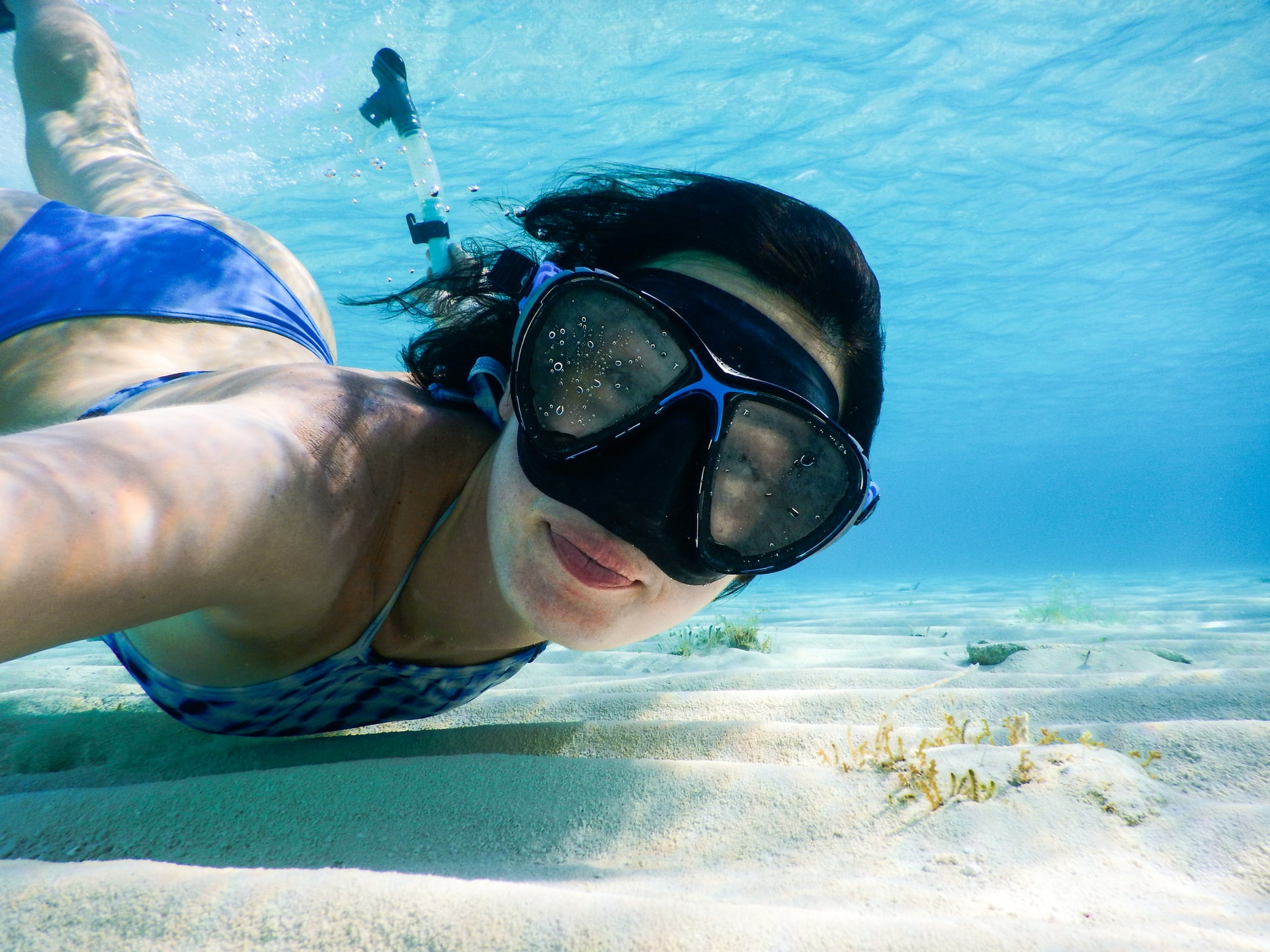Snorkeling is a fantastic way to look at the world underneath the water’s surface without the expense and training required to scuba dive.
But if you’ve not done it before, how easy is snorkeling?
Is it something you need to practice a lot at, or can you get going if you’re relatively comfortable in the water?
We’re going to take you through everything you need to know, and you’ll find that so long as you’re sensible and don’t try to overdo it, that yes, snorkeling can be easy, and it’s a terrific way to check out the aquatic world.
- How Hard Is Snorkeling?
- How Long Does It Take to Learn Snorkeling?
- What Are Easy Beginner Conditions for Snorkeling?
- Is Snorkeling in Saltwater Easier Than in Freshwater?
- Can Anyone Learn to Snorkel?
- Is Snorkeling Easy for Non-Swimmers?
- Does Snorkeling Require Training?
- Do I Have to Be in Good Physical Shape for Snorkeling?
- What’s the Best Way to Learn Snorkeling?
- Should I Take Snorkeling Lessons?
- Are There Snorkeling Certifications?
- 12 Tips for Beginners
- 1. Get a Mask and Snorkel That Fits You
- 2. Try Your Gear Out in a Pool First, Practice and Relax
- 3. Take Full, Deep, Calm Breaths
- 4. Use a Flotation Device or Buoyancy Aid
- 5. Remember to Keep Your Head Up
- 6. Always Snorkel With a Buddy
- 7. You’ll Be More Comfortable in Shallow Water
- 8. Always Start Swimming Into the Current
- 9. Pay Attention to What’s Going on Around You
- 10. Stay Together When Snorkeling in a Group
- 11. Listen to Guide Briefing
- 12. Duck Dive One at a Time
- Conclusion
- You Might Also Like…
Disclosure: this post contains affiliate links (clearly marked with ), which means we may earn a commission if you buy something through them, at no additional cost to you.
How Hard Is Snorkeling?
On the face of it, snorkeling looks pretty straightforward.
You’re just swimming along wearing a mask breathing through the snorkel tube.
How difficult can that be?
For a lot of people, the first time snorkeling can be quite challenging.
They might have trouble breathing through the snorkel without getting water inside.
Maybe, they find swimming with the fins difficult.
It could be that they get water inside the mask, and that causes discomfort.
But in general, these issues can be overcome relatively quickly with just a little practice, and soon you’ll be checking out all the fascinating underwater life quite quickly.
Staying calm helps a lot, as does having gear that fits you properly, combined with your being relatively comfortable already in the water.
So long as you’re sensible and don’t go into conditions that are too challenging for you, you’ll soon find that snorkeling isn’t hard at all.
At the end of this article, we’ve made a list that gives you 12 great tips that will help make starting snorkeling easier for you.
How Long Does It Take to Learn Snorkeling?
This all depends on the individual, and it’s pretty common for people to take to snorkeling right away once they’ve just been shown a few basics.
For others, it can take a little longer to get comfortable and keep their face in the water for extended periods.
The key is to start slowly and work at your speed.
If you rush into water where the conditions are too challenging, then you’re far less likely to enjoy it.
What Are Easy Beginner Conditions for Snorkeling?
The most straightforward and confidence-inspiring place to start is in a shallow swimming pool where you can stand up if you need to.
While there’s not a great deal to look at typically in a swimming pool, it’s the ideal place to try snorkeling the very first time, practice techniques like mask and snorkel clearing, or test out new equipment.
In open water, where there’s more to see, look for a sheltered area like a lagoon with nice calm water that’s standing depth.
The calmer the water, the less likely it is for any waves to splash into your snorkel, and you’ll also feel generally more comfortable.
When some people start snorkeling, they find feelings of vertigo if the water is too deep.
Starting shallow eliminates this and also means you can stand if you’re having trouble perfecting clearing water from the mask or snorkel or just if you need to take a moment.
Just make sure that you’re not going to stand on any sensitive sea life as it’s easily damaged.
It would be best to choose an area without any current so that you don’t have to worry about being pushed from your entry and exit point.
While you should always snorkel with a buddy, it’s a great idea to start in an area that has surface cover available just in case you should need help.
Many resorts have dedicated snorkel areas with lifeguards on standby if needed, and often these have surface ropes or other means for you to hold onto while you can get used to having your face underwater.
Is Snorkeling in Saltwater Easier Than in Freshwater?
It’s easier snorkeling in saltwater for many people as the water is denser, and so it takes less effort to float.
However, the salt can be irritating to your eyes and throat if you get some in the mask or swallow some.
This is one reason why it’s essential to have a correctly fitting mask that is less likely to leak.
Likewise, having a good quality snorkel that’s less inclined to take in water is even more helpful in saltwater.
Look for one that has a valve that helps prevent water from coming in the open end.
But remember that water will always leak in at some point, even if it’s just a little bit, so comfort with the techniques for clearing the mask and snorkel are still important.
Can Anyone Learn to Snorkel?
In general terms, yes, anyone can if they want to!
As a lower age limit, children eight and above, with their parents or a professional’s supervision, can do well, but much younger may struggle.
Remember that children’s small faces and mouths will need suitably sized masks and snorkels to be safe and have fun.
Small lungs can have problems blowing hard enough to clear water from a snorkel or mask, so it might be necessary for smaller-sized kids to wait a little bit to be safe.
There’s no upper age limit for snorkeling, and anyone in good health with a reasonable level of fitness, which we will discuss below, can happily give it a try.
It’s essential, of course, not to push yourself into challenging or uncomfortable conditions as this increases the chances of having a problem.
Start slowly and gently, and you should be fine.
Is Snorkeling Easy for Non-Swimmers?
A non-swimmer will find snorkeling harder than someone that is a natural in the water.
However, this doesn’t mean that they can’t take part.
The first thing to remember is that, in general, snorkeling should be a relaxed and slow pastime.
It’s not necessarily about covering huge areas as quickly as possible.
Secondly, buoyancy aids like snorkel vests or jackets mean that you can float comfortably at the surface.
The efficiency of snorkel fins means that even non-swimmers can propel themselves with just a little practice.
Start in the beginner conditions that we’ve suggested above and take it slowly, and non-swimmers can enjoy a look underwater too.
Does Snorkeling Require Training?
It’s not required to take training to snorkel. But it can be helpful, especially if you’ve never tried it before.
In just a short briefing, a snorkel instructor or guide can talk you through the techniques for clearing water from the mask and snorkel and can give you helpful tips to get the most out of your session.
While a lot might seem obvious, getting local insight if you’re going to snorkel in a new place can help you avoid hazards, protect the environment, as well as assist you in seeing the most exciting life.
Do I Have to Be in Good Physical Shape for Snorkeling?
Reasonable physical fitness and health are a good idea for snorkeling, and if you’re taking part in a professionally led excursion, you might be asked to complete a medical form.
While not as extensive as the health screening requirements for scuba diving, there are still some risks from snorkeling, and so you might be asked about basic health matters such as any heart conditions.
In terms of fitness, snorkeling can need some physical exertion, so if you think this might be a problem, then stick to calmer areas without currents or waves to contend with, and you should be fine.
Needless to say, if you have any concerns at all, then you should discuss them with your doctor before getting into the water.
What’s the Best Way to Learn Snorkeling?
If you have a friend who’s an experienced snorkeler, they could show you the basics in a pool or calm water.
If you’re confident that it might be possible to sign up for an organized snorkel excursion that’s going to a peaceful location.
Just make sure that you let the guide know that it’s your first time out so they can give you the necessary advice and attention.
Alternatively, it’s possible to take formal lessons, which can be perfect if you’re feeling a bit nervous or want to get the most out of the activity possible.
Should I Take Snorkeling Lessons?
If you don’t have an experienced friend who can help you or feel less confident, then taking lessons with a professional could be a great idea.
They can teach you everything you need to know, and their experience can help solve any problems you might be having.
They can also provide advice on the best equipment for you.
Are There Snorkeling Certifications?
There are proper snorkeling courses from many training agencies available.
The most common are probably those provided by the scuba diving agencies, which, as well as general snorkeling, also show you how to duck dive safely.
SSI offers a Snorkel Diver certification, while PADI has its Skin Diver course, and NAUI offers a Snorkeler program.
In these and other courses, an instructor will take you through practicing a range of skills so that you’re comfortable snorkeling and taught how to overcome any challenges that you could come up against.
12 Tips for Beginners
1. Get a Mask and Snorkel That Fits You
You must have equipment that fits you if you want to enjoy your snorkeling experience.
It’s common on holiday to be provided with rental gear, but unfortunately, masks and snorkels are not available in one size fits all.
The best excursion companies will have a range of gear in different sizes, but it’s usually best to have your own.
A poorly fitting mask will leak constantly, and it can be uncomfortable to have to clear water out all the time.
Similarly, if your snorkel mouthpiece isn’t suitable for your mouth shape, it can lead to jaw aches or water getting in.
Before your trip, visit a local store if possible and try different kits to see what’s right for you.
2. Try Your Gear Out in a Pool First, Practice and Relax
You’ll do well if you try your equipment out for the first time in a swimming pool or calm area of water.
Shallow water where you can stand up is perfect for testing and adjusting masks, so they fit perfectly.
Don’t forget that you’ll need to prepare and clean the new glass on your mask thoroughly before using it to prevent it from fogging up.
Take a bottle of anti-fog along to use every time before you go out snorkeling so you’ll see as much as possible.
You can practice your snorkel finning techniques and clearing the mask and snorkel or water.
All these are easy to do in shallow calm water, and you’ll gain confidence to take out to sea with you.
3. Take Full, Deep, Calm Breaths
It’s essential when snorkeling to take nice calm, deep breaths.
The volume of air inside the snorkel, your mouth, throat, and lungs is called a “dead air space.”
If you only breathe shallow breaths, it’s possible that this air isn’t fully expelled and renewed, which can lead to a slow build-up of carbon dioxide that, in extreme circumstances, can cause you to blackout.
It’s easy to avoid this by taking nice, slow deep breaths and if you do ever feel out of breath or a sudden headache, lie on your back and breath without the snorkel until it clears.
4. Use a Flotation Device or Buoyancy Aid
You’ll want to float comfortably and remain safe even if you should get tired.
A snorkel vest is a great way to stay buoyant as you can partially or fully blow it up as you need.
Confident swimmers can leave it uninflated but will have it there to blow up if they should need it.
You can also use swimming floats, life jackets, or rings to make things easier, and these are all especially useful if you’re not a strong swimmer or particularly confident.
5. Remember to Keep Your Head Up
If you’re using a standard mask and snorkel, then it’s easy to get water inside the snorkel pipe or close the exhaust valve if you put your head too far down into the water.
Generally, when snorkeling at the surface, keep the water level just about the top of the mask, and you’ll be fine.
6. Always Snorkel With a Buddy
Under normal circumstances, you shouldn’t snorkel alone, especially as a beginner.
Snorkeling with a buddy means that if you should need it, there’s someone there to look out for you, just as you also look out for them.
It’s also usually more fun and accessible as you can share the exciting things that you see and help each other get in and out of the water, put on fins, and anything else you might need.
7. You’ll Be More Comfortable in Shallow Water
As a beginner, try shallow water first, and you’ll feel much more confident.
Water that is shallow enough to stand in is the best place to practice when you’re starting.
Some people don’t feel comfortable in water that’s too deep, or at least not until they’ve gained confidence.
Start shallow and build up slowly as your confidence grows.
Make sure that you won’t damage sensitive marine life if you do need to stand.
Never stand on coral as it is easily damaged or killed.
8. Always Start Swimming Into the Current
When you’re fresh with energy, make sure that you start your activity swimming into any current that’s present.
That way, when it’s time to come back to the exit point, and you’re likely a bit more tired, then the current will help you.
It’s easy to get stuck or overly tired if you start by drifting off with the current unless you’re specifically drift snorkeling and have a boat to come and get you.
9. Pay Attention to What’s Going on Around You
Make sure that as well as enjoying what’s going on underwater, you pay attention to what’s happening around you.
It’s easy to lose track of your buddy or get too far away from your exit point if you’re not alert.
Conditions can change, and waves or swell could push you towards a reef or rocks if you’re unaware of them.
Consider the environment, and avoid touching anything as you snorkel as it is very easy to damage coral and other marine life.
Periodically take the time to note how far you’ve gone, check on your buddy, and look around you to make sure nothing significant has changed.
10. Stay Together When Snorkeling in a Group
If you’re in a group, even with your buddy, try not to stray too far away.
In a group situation, while you want to give each other a bit of space, it’s important to stay together so that communication is easy and that any particularly exciting sightings can be shared.
In a group, if everyone shoots off with their buddy in different directions, it’s tough for the guide to assist you, especially as a beginner.
11. Listen to Guide Briefing
If you’re on an organized excursion, make sure you pay attention to the pre-snorkel briefing.
They’ll cover important information about the environment, what you’ll likely see, communications, and safety procedures.
As a beginner, you’ll get the most out of the trip for fun and safety by following the advice of the professionals that are there to help you.
12. Duck Dive One at a Time
Duck diving is a terrific way to add extra enjoyment to your snorkeling, and you shouldn’t be afraid to give it a try.
Techniques can be covered either with formal lessons or can be discussed with a guide on a trip.
The most important rule is that while one person is duck diving, their buddy remains on the surface watching to assist if needed.
Something called shallow water blackout can occur when duck diving that can lead you to become unconscious underwater.
It’s not a common occurrence, but if a snorkeler has hyperventilated at the surface before diving down, they might stay underwater too long and blackout from lack of oxygen.
So when duck diving, one buddy should always stay at the surface to watch.
Conclusion
Snorkeling is a great experience that is well worth trying next time you’re somewhere with warm, clear water.
Instead of spending all the time on the sunlounger, you can take a look at the fantastic world under the surface.
With some caution and sense, you can enjoy snorkeling quite easily.
Start in calm, shallow water to build confidence, and soon you’ll be off exploring with the best.
You Might Also Like…
-

Can You Drown Snorkeling? 11 Common Reasons (+Helpful Tips)
-

Can I Use Snorkeling Fins for Bodyboarding? Pros & Cons (+6 Tips)
-

What Colors to Avoid When Snorkeling? (& Which You Should Wear)
-

Is It Safe to Fly After Snorkeling? What You Should Know (+4 Tips)
-
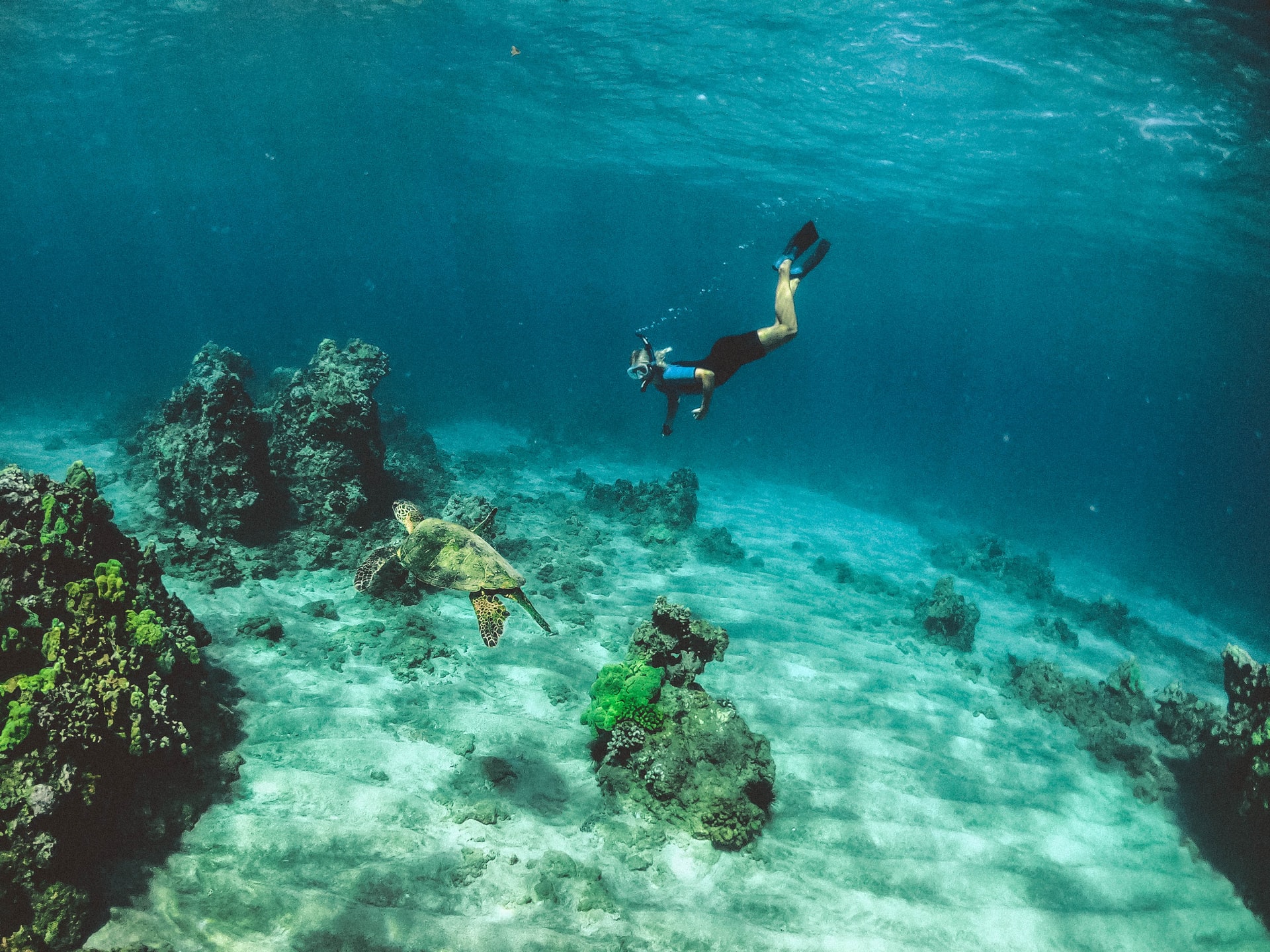
Can’t Hear After Snorkeling? 3 Possible Causes (& Solutions)
-
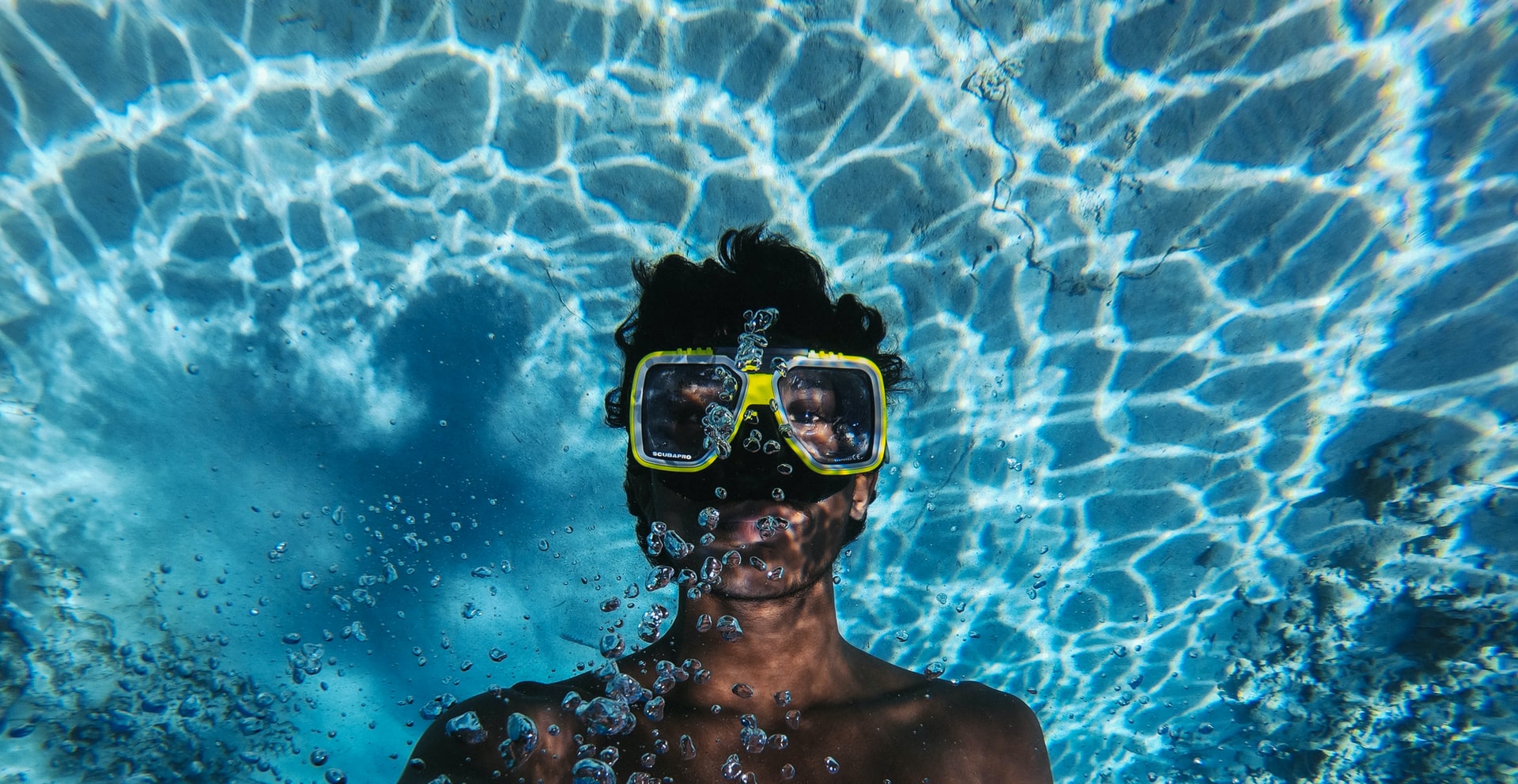
Can Snorkeling Cause a Sinus Infection? (+9 Tips to Avoid It)
-
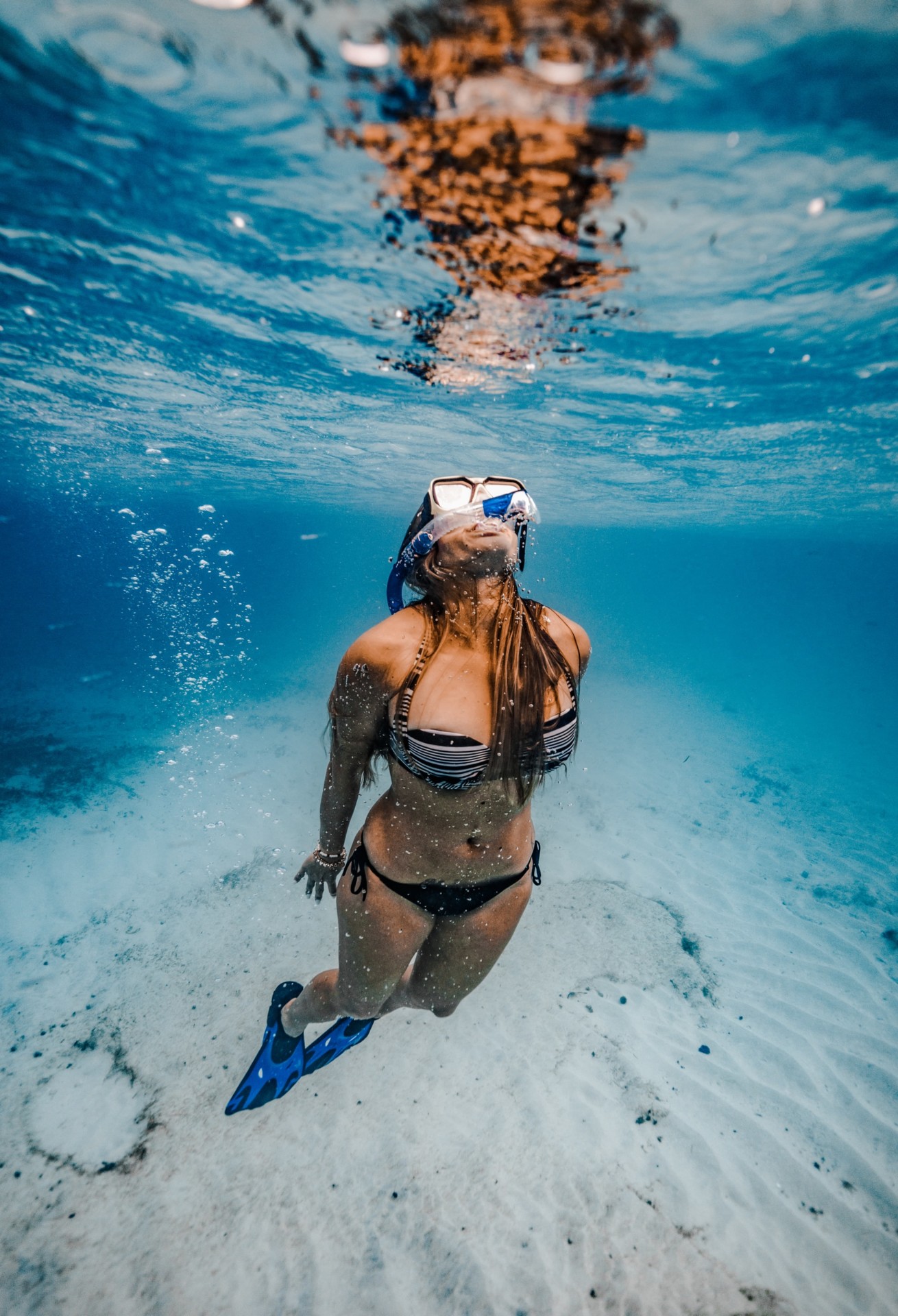
Can Snorkeling Cause a Sore Throat? 8 Common Causes (+Tips)
-
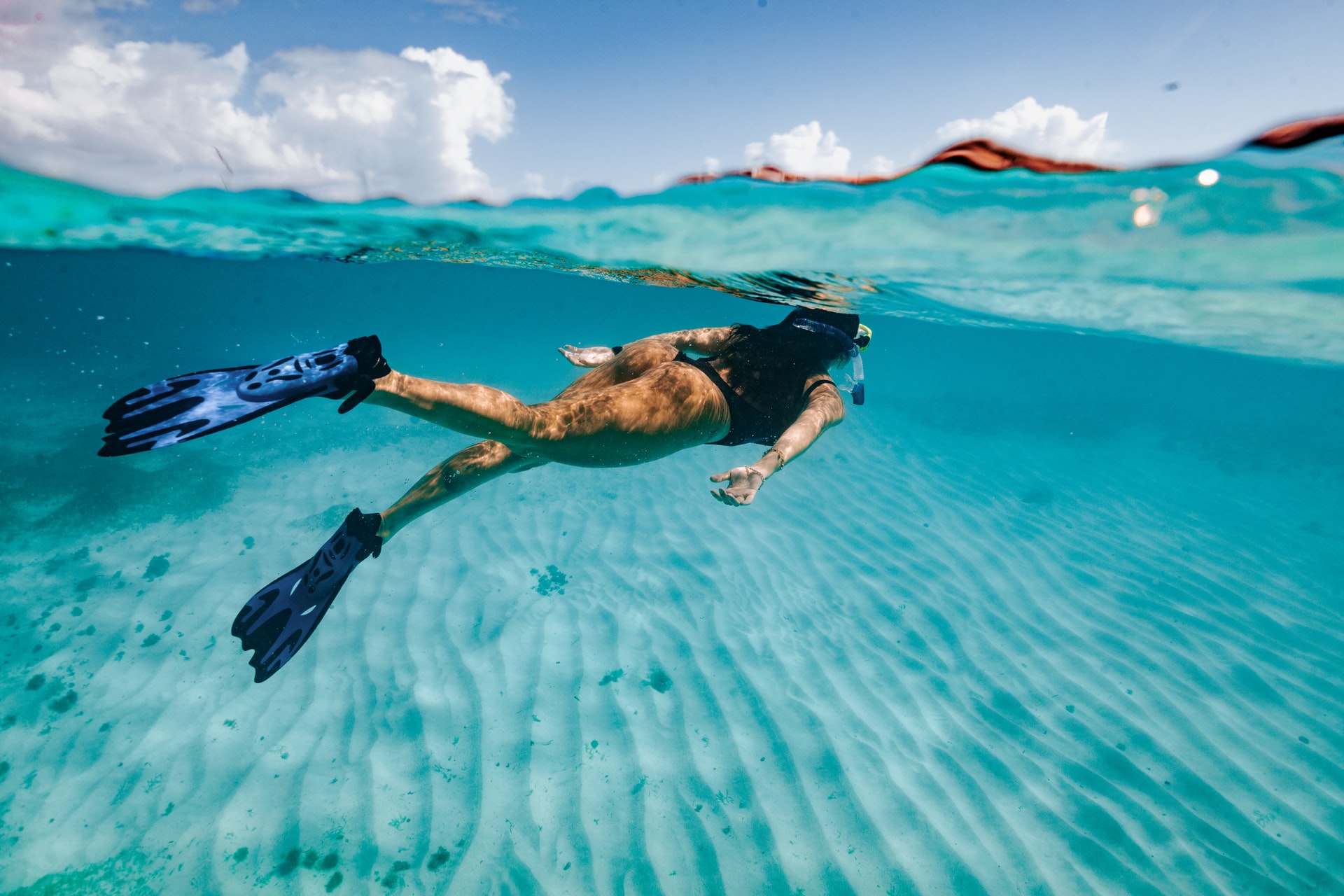
Can Snorkeling Cause Vertigo? (+8 Tips to Avoid It)
-
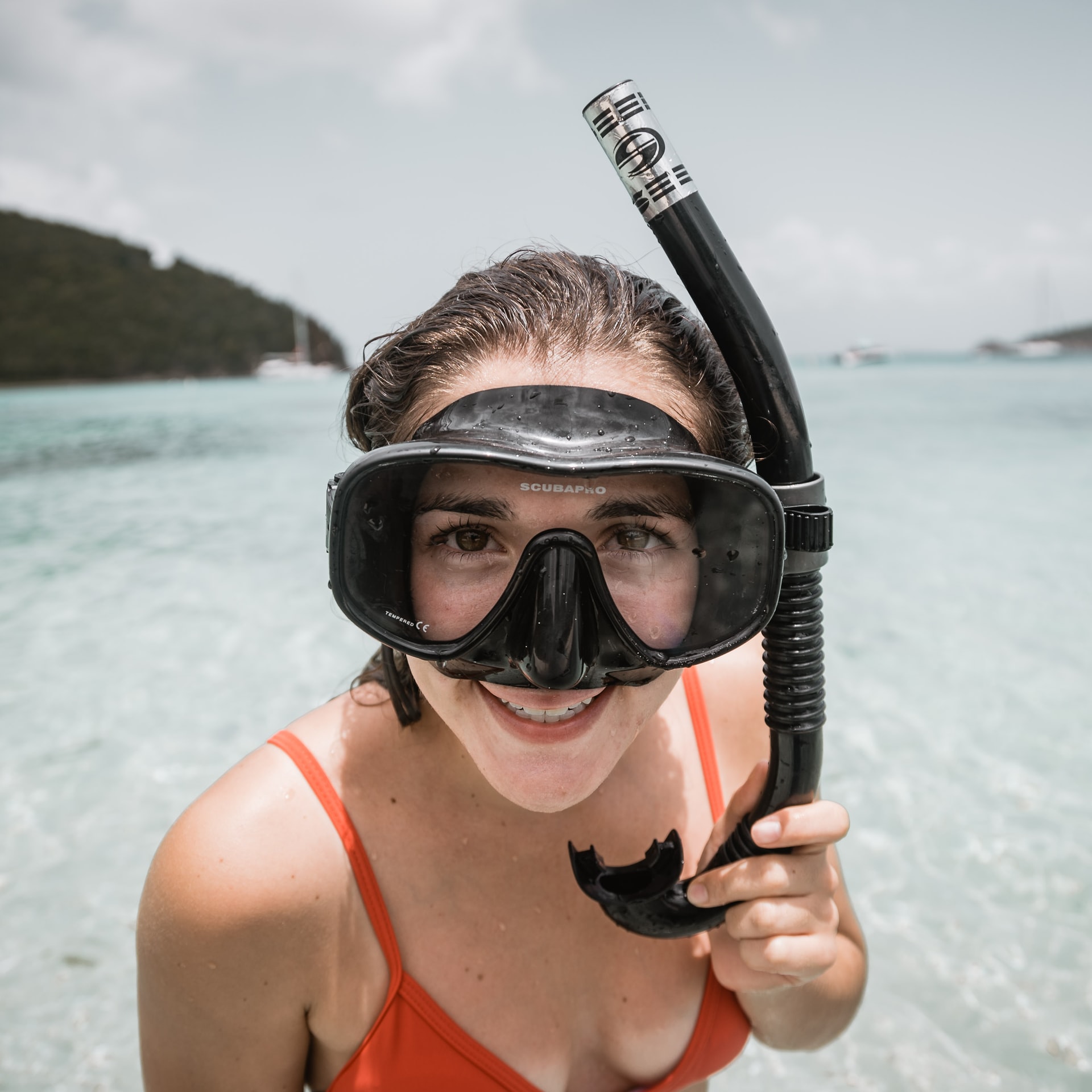
How Do Snorkel Masks Work? (+Regular Vs. Full-Face Masks)
-
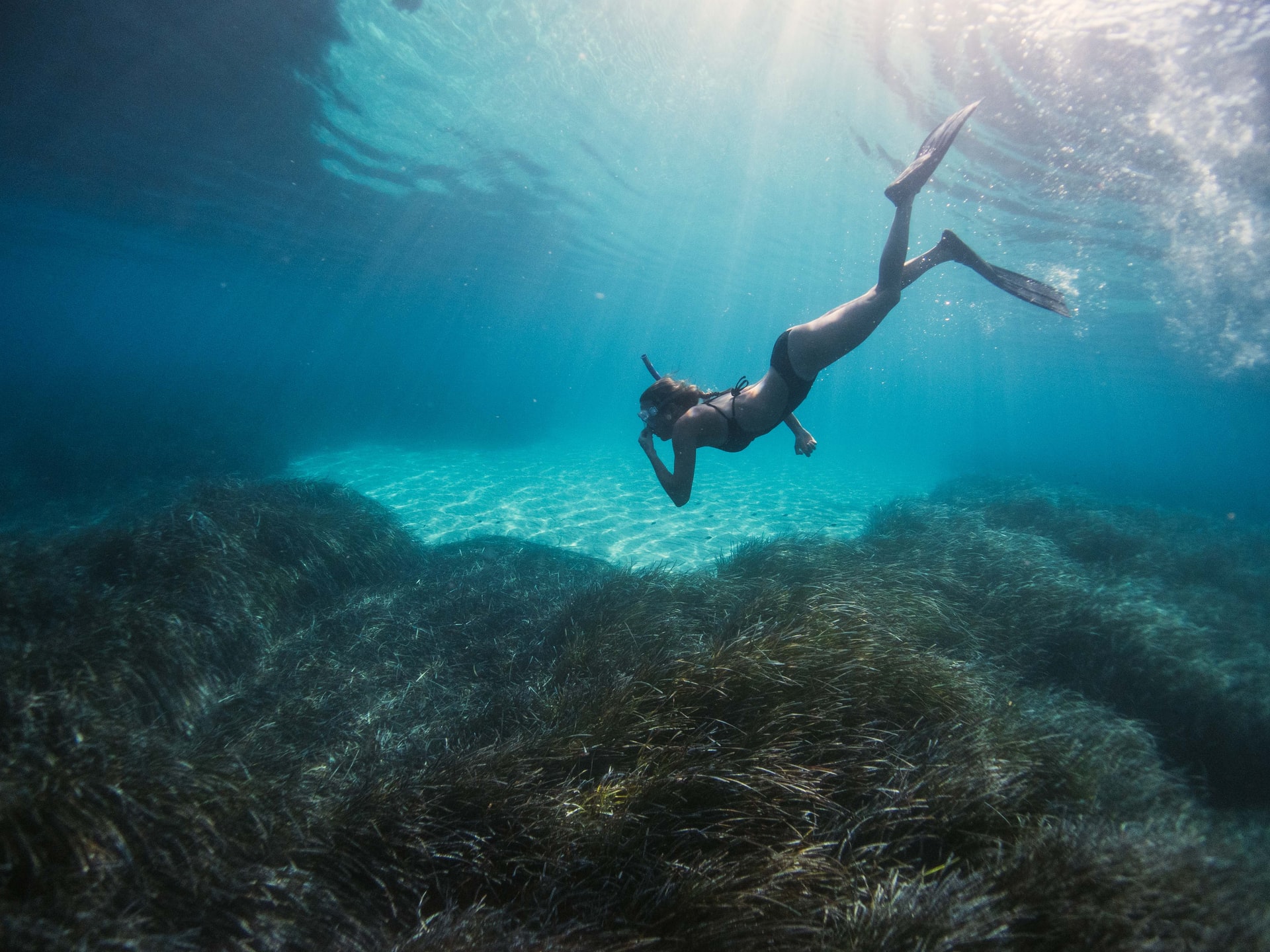
Why Does Snorkeling Make Me Nauseous? (11 Causes & Remedies)
-
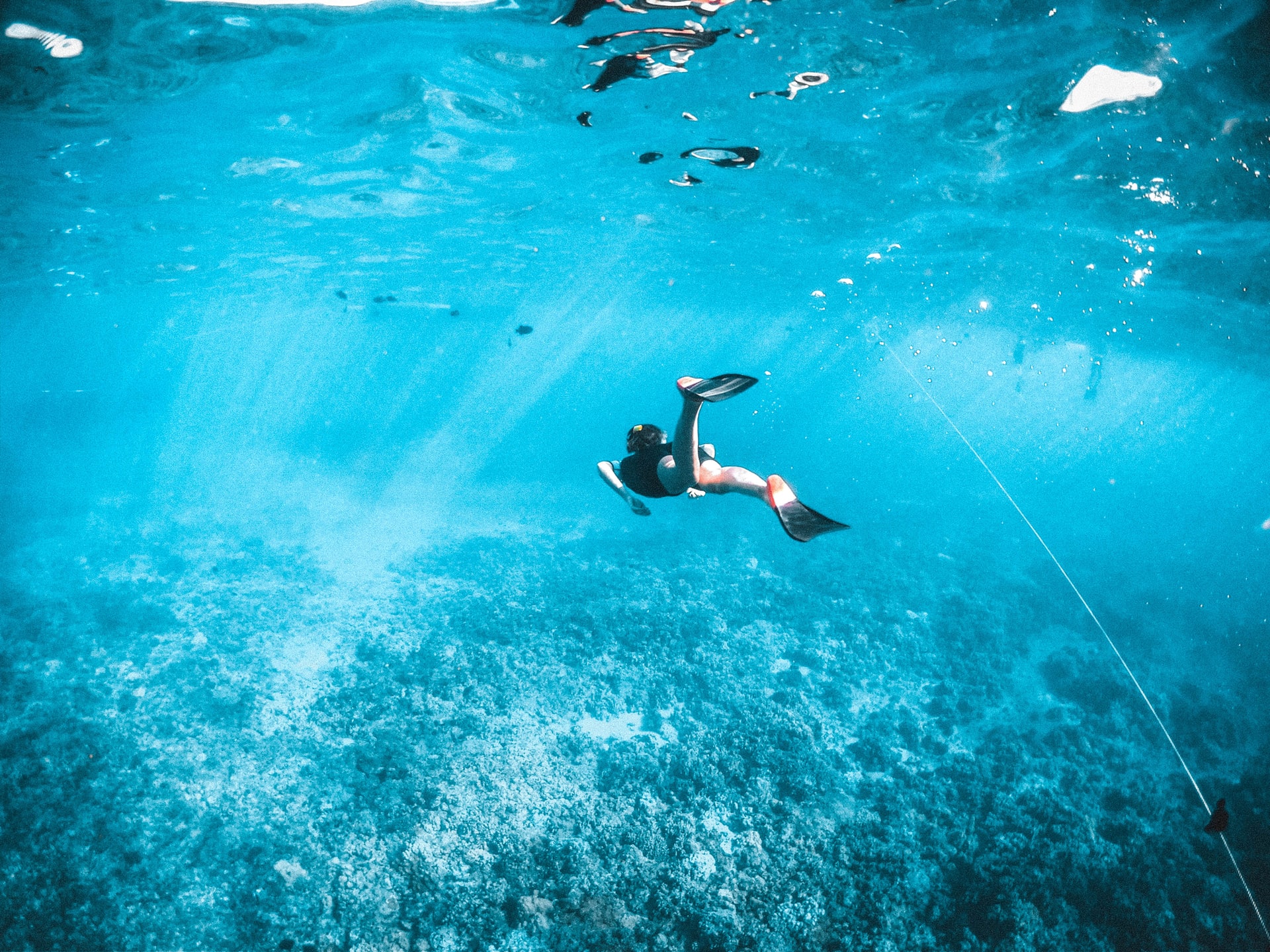
What Does Snorkeling Feel Like? FAQs Answered (for Beginners)
-
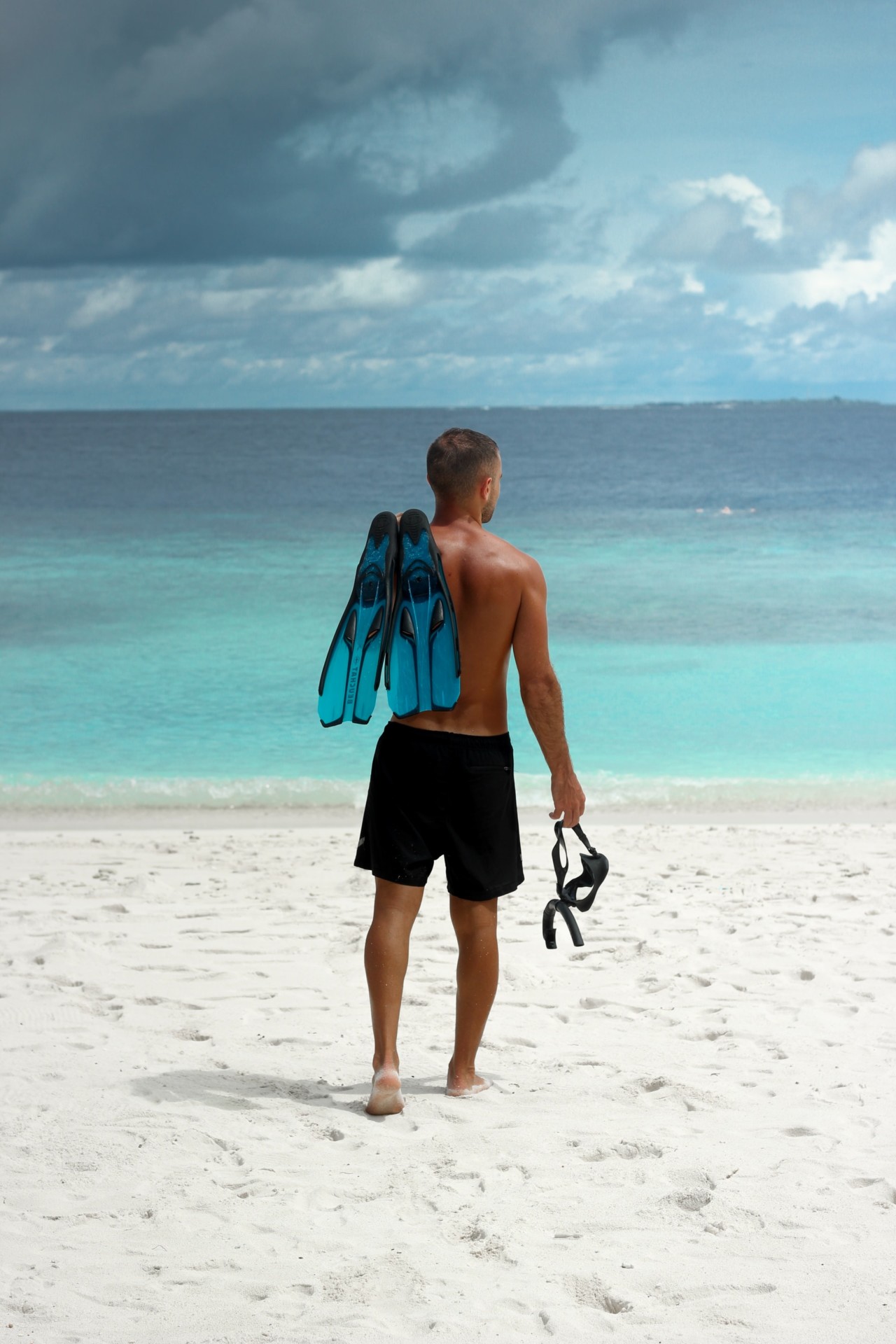
Does Rain Affect Snorkeling Visibility? 4 Ways It Does (+Helpful Tips)

